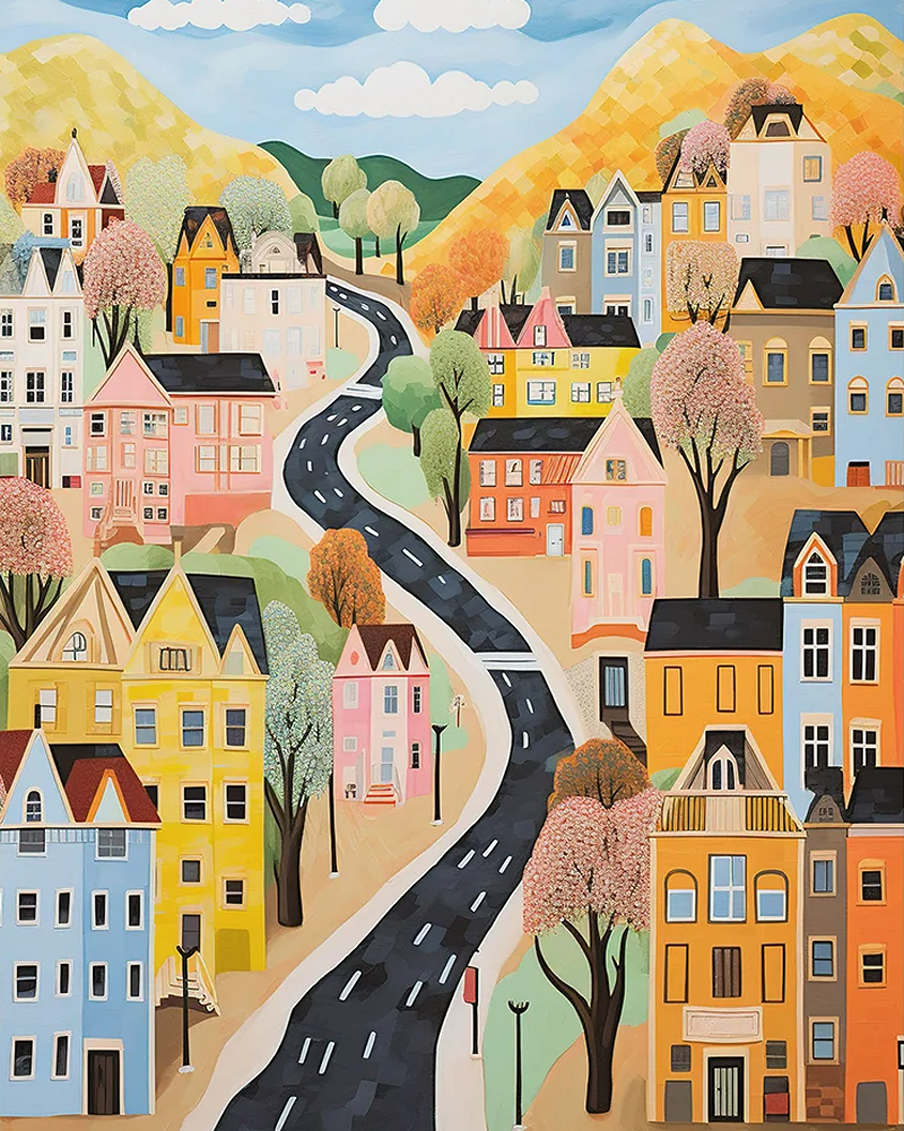
Transition towns are ‘resilient towns’, designed to be run independently, so if the oil ran out (or became too expensive), people could still their lives pretty much the same way as now. Oil (made from the skeletons of creatures under the sea) is due to run out in a few decades. There is still plenty left, but extracting it causes harm to the planet and marine creatures, fossil fuels are mostly responsible for the climate crisis, and nearly all countries at war are oil-rich.
Read food safety for people & pets. If planting green spaces, learn how to make gardens safe for pets (includes indoor plants to avoid). Avoid facing indoor foliage to gardens, to help stop birds flying into windows.
The movement was co-founded by permaculture teacher Rob Hopkins after he heard how the then-Prime Minister said we were ‘weeks away from no food’ due to lorry strikes. This was because supermarkets store food (often imported by air = oil) in central distribution houses (with fridges powered by oil). And then food is trundled down motorways in lorries (petrol=oil) to reach supermarket shelves. Even some ‘local foods’ go through all this journey, to return within a few miles of where it was grown. And most supermarkets sell factory-farmed meat (again powered by oil).
The idea of a Transition Town is simply empowerment and independence. The first one was launched in Totnes (Devon) quickly followed by others in Richmond-upon-Thames (Surrey) and Hebden Bridge (Yorkshire). Each one is self-sufficient and people simply swap ideas. The idea is that the town can grow and sell its own food, support local shops (that don’t need oil to transport local food) and even schools have community solar panels to power the whole village (selling leftover energy back to the grid, to give local people free power). Other ideas from this now-worldwide movement include:
- Grow local free food for anyone (including trees for fruit/nuts)
- Locally-owned indie cinemas and shops
- Starting up local currencies
- Discount schemes for local indie shops
- Sharing schemes (tools, books etc)
Might it be that creating vibrant local economies with increased community ownership, meeting practical needs from as nearby as possible (and living well while consuming far less energy could actually better meet our needs? Rob Hopkins
install a community energy solar panel
One very popular idea for Transition Towns (considering they wish to be oil-independent) is to install a community solar panel. You’ve likely heard that if you put a solar panel on your house, it’s not really worth it as you won’t get money back for 20 years. But if a village puts a solar panel on say a school or other large building, the money comes back very quick, and then excess money sold to the grid can be used to pay all the energy bills. In simple terms – you don’t pay any energy bills! And considering the huge issues we have right now with people choosing between heating and eating, this is one of the best ways to kick-start your Transition Town, that will prove popular with all your community.
Solar power is the large energy resource that isn’t owned yet. Nobody taxes the sun yet. Bonnie Rait
ideas to inspire from Transition Towns worldwide
- In Totnes (Devon), people who enjoy a meal in the town give money to the cafe and this is given to the local rough sleeper shelter and emergency food bank, to help homeless residents.
- In Europe, cities build raised beds and grow fruits and vegetables, to provide locally-grown jam or chutney for residents.
- Many towns create their own local currencies, which work a bit like gift vouchers. In use in Lewes (Sussex) and Brixton (London), the bank notes are beautifully designed with security watermarks (the latter has a way to pay by text at markets in local currencies). You collect them and then get change back in sterling. Sometimes big supermarkets have asked to join, they don’t really get the idea, do they?
- Many towns and cities across the world install Repair Cafes, using knowledgable skills to save people buying other new items. It’s pretty cool to get top engineers who volunteer and fix things – one recipient was amazed when someone quite famous fixed their electric shaver!
- Farmers’ markets are often set up, to promote local food (needs no oil to transport via lorries). In London, there are many Transition markets overflowing with breads and cupcakes galore!
- In Luxembourg, three friends started a community supported agriculture scheme (where farmers are paid in advance to grow food) and were offered a beautiful site overlooking the city, and were growing and delivering weekly boxes of vegetables within months.
The whole notion of transition towns is to create a community where everyone is helped. One person was inspired by the terribly tragic story of Anne Leitrim, a nurse (not yet 60) was found dead in her flat in Bournemouth. She had been there for 6 years, with neighbours thinking she had moved away. She was only discovered by a bailiff who accessed a bedroom window to remove her possessions, because the bills had gone unpaid since automatic mortgage payments had stopped. Yet Anne did not live in a rural outhouse – she lived in a modest block of flats overlooking a community garden. This is just why transition towns are needed, so that the same can never happen again.
